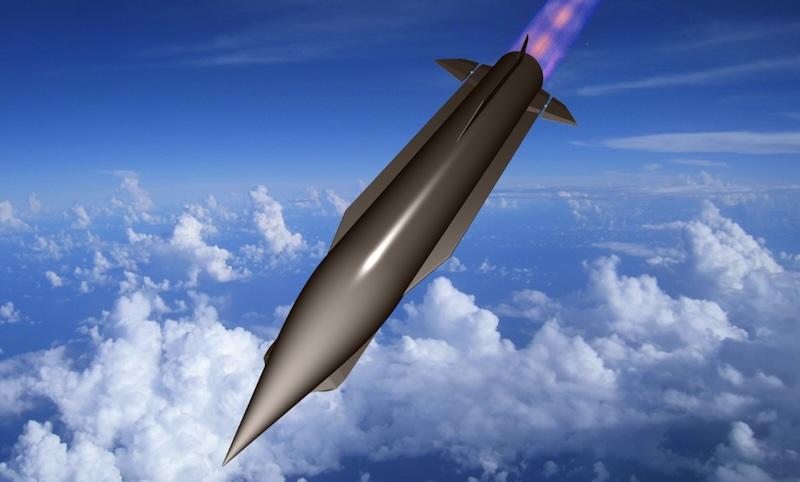This article is published in Aerospace Daily & Defense Report part of Aviation Week Intelligence Network (AWIN), and is complimentary through Apr 15, 2025. For information on becoming an AWIN Member to access more content like this, click here.

Credit: UK Defense Ministry/Defense Equipment & Support
LONDON—UK and U.S. scientists have completed a series of trials in support of the UK’s domestic development of a hypersonic cruise missile demonstrator.
A joint team from UK’s Defense Science and Technology Laboratory (DSTL) together with the U.S. Air Force Research Laboratory (AFRL) have completed 233 static runs of an air-breathing engine for a hypersonic weapon.
The trials of the propulsion system, which took place over six weeks at NASA’s Langley Research Center in Virginia, proved several design variations, ensuring the propulsion system could be adapted for future design updates.
“The tests spanned the full flight Mach number range from supersonic to hypersonic speeds, validating the robustness of the engine design and paving the way for future upgrades,” the DSTL stated April 6.
Officials say the engine’s high-speed air-breathing performance was “successfully demonstrated” and that it will go on to power a hypersonic cruise missile technology demonstrator by 2030 through the UK Defense Ministry’s Team Hypersonics program.
Development of the propulsion system is part of the UK’s £1 billion ($1.3 billion) domestic effort to build the capabilities to produce hypersonic weapons. Some 90 UK and international companies are involved in the country's Hypersonic Technologies and Capability Development Framework (HTCDF) to work on the various pillars of R&D around hypersonic weapons including modeling, airframe and power generation, propulsion, computing, seekers, lethal packages and low-technology readiness level and academic work packages.
Details of the HTCDF emerged in summer 2023, when the procurement officials detailed the plans through tender documents that confirmed that UK hypersonic weapon development efforts were being backed by a “clear political intent.”
DSTL named British company Gas Dynamics Ltd. as among those involved in the latest trials. The Farnborough-based company describes itself as a specialist in aero-thermodynamics.
“This milestone moment on hypersonics research, supported by British scientists and British small businesses, demonstrates another crucial area where we are working in lockstep with the U.S. to bolster our armed forces and strengthen our deterrence,” UK Defense Secretary John Healey said.





